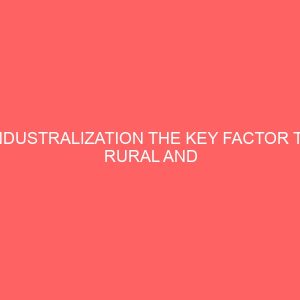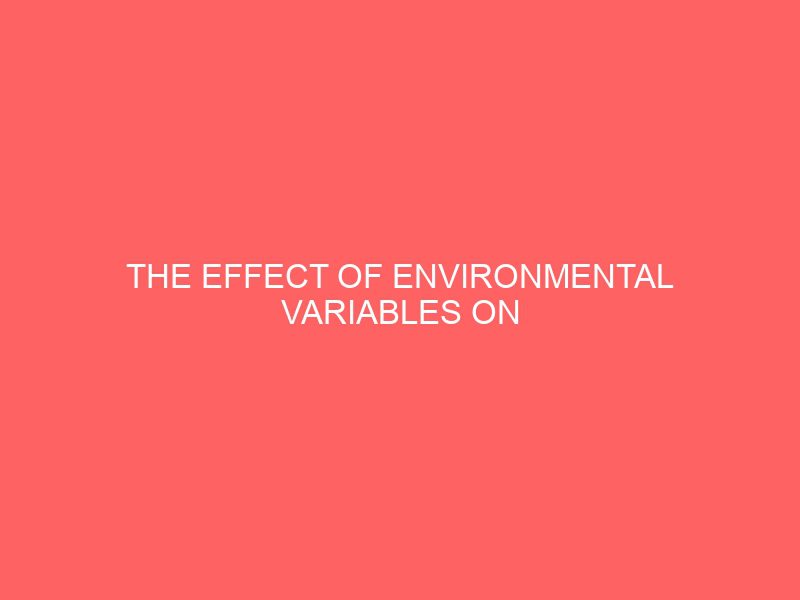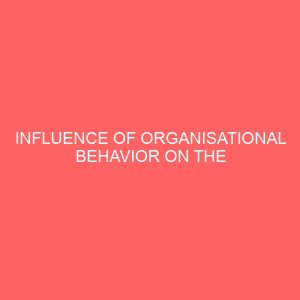Description
CHAPTER ONE INTRODUCTION 1.1 BACKGROUND OF THE STUDY The business environment is the environment facing the organization or company and should be considered in making business decisions. Company or organization’s daily activities include interaction with the surrounding environment, including suppliers, shareholders, unions, customers, government, and so forth. The business environment was instrumental in influencing the determination of the organization’s marketing strategy. Analysis of the business environment is intended to identify business opportunities that need the immediate attention of the executive and at the same time directed to find threats that businesses need to get anticipation. Analysis of the business environment trying to figure out the managerial implications arising directly or indirectly from a variety of external factors that have been identified affect the development and progress and prospects of the company (Suwarsono, 1994). A new competitive environment is developing largely based on the current technological revolution and increasing globalization. The emergence of a temporarily stable political environment premised on the evolving democratic policy in Nigeria has led to increased foreign participation in corporate governance (Kama, 2005). The business environment here has thus become filled with service and manufacturing firms in search of excellent practices to achieve competitive advantage, which must be seen by their customers as to their benefit by delivering superior value, which enhances repeat patronage and sales growth (Hooley et al., 2005). However, evidence from various empirical studies by Yadong (2004); Thomas, Blaltberg, and Fox (2004); Finney, Campbell and Powell (2005); Salavou (2005) and Kopalle and Lehmann (2006) show that while these practices are essential for continuous improvement, they seldom create any sustainable competitive advantage if market structure, demand, and technologies continue to evolve unexpectedly (or even expectedly) over time (Harrigan, 2004). Bamidele (2005) links this issue with marketing. The concept of marketing defines a business?s success achieved through a process of understanding and meeting customer needs (Kotler, 2004). While this definition looks simple and straightforward, achievement involves many complex, interdependent or even conflicting tasks (Porter, 1998). Such tasks are implemented against a backdrop of constant change, intense competition and limited resources (Kagoal and Norton, 1992; Lavie, 2006). A well articulated, effectively implemented marketing strategy would go a long way to alleviating this problem and reducing the complexity of business tasks (Kagoal and Norton, 2001; Baker and Maddux, 2005). Businesses consequently now recognize the importance of strategic issues and the contribution of strategic marketing to business success (Davidson, 1997; and Demond, 2004). Finney, Noel and Powell (2005) define strategy as the pattern or goal that integrates an Ireland and Hitt (2005) assert that firms are able to adapt in turbulent environments when they are strategically flexible enough to accommodate changes brought about by the environmental variables. Smith, Collins and Clark (2005) assert that firms which are unable to adapt and innovate will fail. Hence this study would tend to investigate the impacts of environmental variables on the marketing goals of an organization. 1.2 RESEARCH OBJECTIVES 1. To establish the relationship between environmental variables and marketing goals. 2. To determine whether environmental variables play a moderating role in enhancing the marketing goals of an organization. 3. To investigate the moderating effect of environmental variables on the relationship between market-focused strategic flexibility and sales growth. 4. To examine the negative influence of environmental variables on the marketing strategy of a firm. 1.3 RESEARCH QUESTIONS 1. Is there any significant relationship between environmental variables and marketing goals? 2. Does an environmental variable play a moderating role in enhancing marketing goals of an organization? 3. What are the moderating effects of environmental variables on the relationship between market-focused strategic flexibility and sales growth? 4. What are the negative influences of environmental variables on the marketing strategy of a firm? 1.4 SIGNIFICANCE OF THE STUDY This study will benefit organization policy makers in establishing the significant relationship between environmental variables and marketing goals so as to implement an effective marketing strategy which would improve the sales of an organization. 1.5 SCOPE OF THE STUDY The study of the impacts of environmental variables on marketing goals is limited to the Coca cola bottling Company, Ibadan. 1.6 LIMITATION OF THE STUDY 1. Network interconnectivity to enhance elaborate research ? 2. High level of illiteracy 3. Organization operational huddles. 4. Time and cost constraints due to cause of scarcity in gasoline to go about the research.







